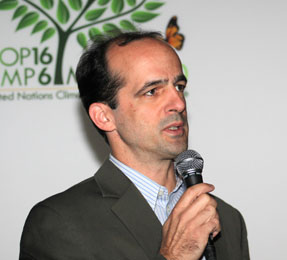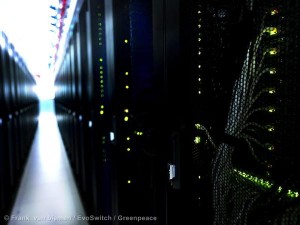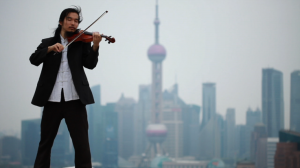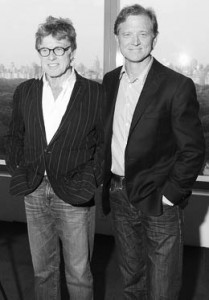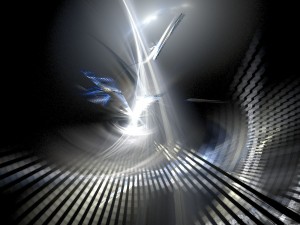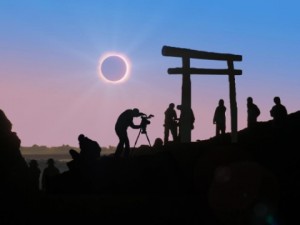 Panasonic has launched “ECLIPSE LIVE FROM FUJIYAMA by SOLAR POWER” broadcast and will the annular solar eclipse on May 20, 2012 live to the world from the summit of Mt. Fuji, an important symbol of nature in Japan, using only green power.“ECLIPSE LIVE FROM FUJIYAMA by SOLAR POWER” This project seeks to highlight to the world Panasonic’s devotion to its “Energy Solution” business and the dynamic technologies and products behind it. All electricity required for the devices used for broadcasting, such as video cameras, filming equipment, and computers, will be drawn from “HIT Solar Cells,” with industry-leading power output, and be supplied through rechargeable batteries made by Panasonic. On the day of the eclipse, Mt. Fuji will be ideally located within the “central eclipse path” that allows for optimum viewing, and the view is especially spectacular in the clear air of the mountain peak. However, the summit of Mt. Fuji in May is covered in snow with freezing temperatures, and there is no electricity available for daily activities. Therefore, the project staff will charge up portable power supplies for domestic use with power generated from the HIT solar cells and carry them up the frozen face of the mountain.
Panasonic has launched “ECLIPSE LIVE FROM FUJIYAMA by SOLAR POWER” broadcast and will the annular solar eclipse on May 20, 2012 live to the world from the summit of Mt. Fuji, an important symbol of nature in Japan, using only green power.“ECLIPSE LIVE FROM FUJIYAMA by SOLAR POWER” This project seeks to highlight to the world Panasonic’s devotion to its “Energy Solution” business and the dynamic technologies and products behind it. All electricity required for the devices used for broadcasting, such as video cameras, filming equipment, and computers, will be drawn from “HIT Solar Cells,” with industry-leading power output, and be supplied through rechargeable batteries made by Panasonic. On the day of the eclipse, Mt. Fuji will be ideally located within the “central eclipse path” that allows for optimum viewing, and the view is especially spectacular in the clear air of the mountain peak. However, the summit of Mt. Fuji in May is covered in snow with freezing temperatures, and there is no electricity available for daily activities. Therefore, the project staff will charge up portable power supplies for domestic use with power generated from the HIT solar cells and carry them up the frozen face of the mountain.
Along with the staff’s work to overcome such an inhospitable environment, the project will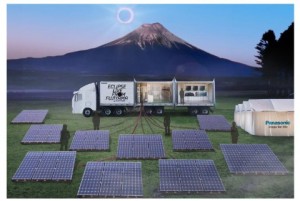 broadcast live the annular eclipse to the world from the closest point to the sun in Japan.The project’s progress will be documented on a special website and Facebook page to be launched on April 17 (April 18 JST) until May 20 (May 21 JST), the day of the annular solar eclipse. We plan to report on the filming equipment, introduce the staff members, and conduct trial tests in advance of the eclipse. We are looking forward to bring the mystical phenomenon of the annular eclipse to as wide a global audience as possible.
broadcast live the annular eclipse to the world from the closest point to the sun in Japan.The project’s progress will be documented on a special website and Facebook page to be launched on April 17 (April 18 JST) until May 20 (May 21 JST), the day of the annular solar eclipse. We plan to report on the filming equipment, introduce the staff members, and conduct trial tests in advance of the eclipse. We are looking forward to bring the mystical phenomenon of the annular eclipse to as wide a global audience as possible.
Panasonic recently sponsored “Photosynthesis”at Milano Salone del Mobile 2012 exhibition, being held in Milan. It was designed by noted young architect Akihisa Hirata, whose organic vision of a living, breathing architecture reflects the open yet interdependent symbiotic cycles in nature. At this year’s exhibition, Panasonic will present an energy cycle, comparing it to an ecological cycle that begins with photosynthesis, starting with energy creation (through solar panels), and continuing to energy storage (through storage batteries) and energy saving (through LED and organic LED lights), with each stage of the cycle being controlled by an energy management system.

